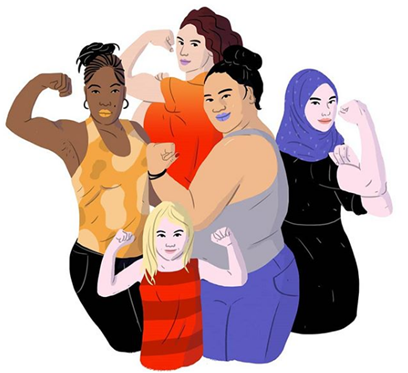‘Love Island’: a guilty pleasure for most on a warm summer’s night. What you may have also been watching in the breaks was MYA’s breast enlargement TV adverts, which branded the surgery as the opportunity to feel ‘amazing’. Twenty-eight formal complaints later, the ASA has ruled the adverts ‘irresponsible and harmful’, subsequently banning them. Yet, is this a restriction of choice – condemning women who want to improve their self-esteem and body confidence – or are the ASA right to prevent archaic notions of ‘conventional beauty’ being reinforced?
Arguably, plastic surgery does have its merits, for example, in almost half of all cases, breast enlargement surgery is used as a cure for macromastia – a condition where breasts never develop. They can also be used for breast reconstruction in the case of mastectomies. For these cases, feeling deformed or like less than a woman can have long-lasting implications for relationships and self-confidence. However, isn’t this just cementing the long-established gender roles of a society where girls are hypersexualised from an early age?
While any woman should feel able to seek breast augmentation free from judgment, the message of these adverts (think: big chested women doing various seductive athletic activities that promote the utmost chest wobble) should not be imposed on young girls and teenagers. The awkward embarrassment of every girl’s first bra shop with mum is bad enough, let alone being ashamed for not having DD cups at the age of fourteen.
This is the main reason that the Mental Health Foundation has openly campaigned against MYA’s adverts, with Isabelle Goldie stating that ‘implying that people can only enjoy body confidence and an aspirational lifestyle by undergoing cosmetic surgery is dangerous and unacceptable’. This is particularly true, when many surgeries, famously Alicia Douvell who spent over £100m on body procedures, are fuelled by an undiagnosed BDD (Body Dysmorphia Disorder). Although initially, surgery can boost positivity concerning a sufferer’s appearance, depression and anxiety can quickly worsen afterwards. The climate in which this advert entered should be considered too. The Girls’ Attitude Survey reports that the percentage of girls unhappy with their appearance has risen from 29% to 33% this year. This can be attributed to the rise of social media and MYA’s advertising is evidently keen to exploit that.
Clearly, MYA agrees (or rather, the opposition of 62,000 viewers has forced it to), as it hasn’t appealed the ruling and instead has released a statement that it is seeking ‘input’ from ‘key mental health organisations’ for its next campaign. This is a step in the right direction. No woman should be shamed for the choices she makes, whether that be an extra slice of cake instead of going to the gym; deciding not to shave her armpits, or even having surgery. Given the pressure of social media and growing body positivity movement, this advert should have had a more inclusive and sensitive approach. People come in all shapes and sizes; so do boobs.
Sacha Rines
Image: @laura_breiling

